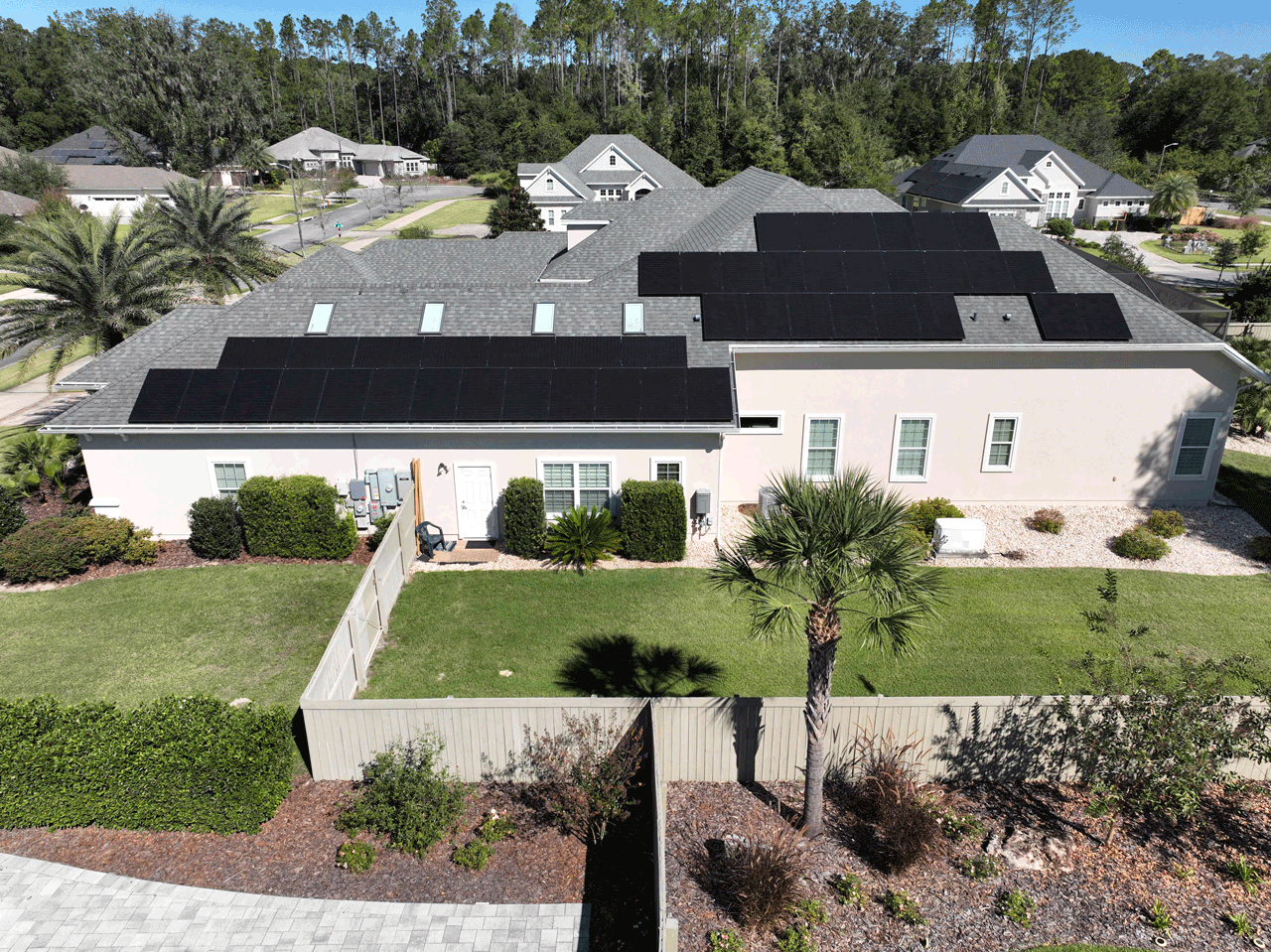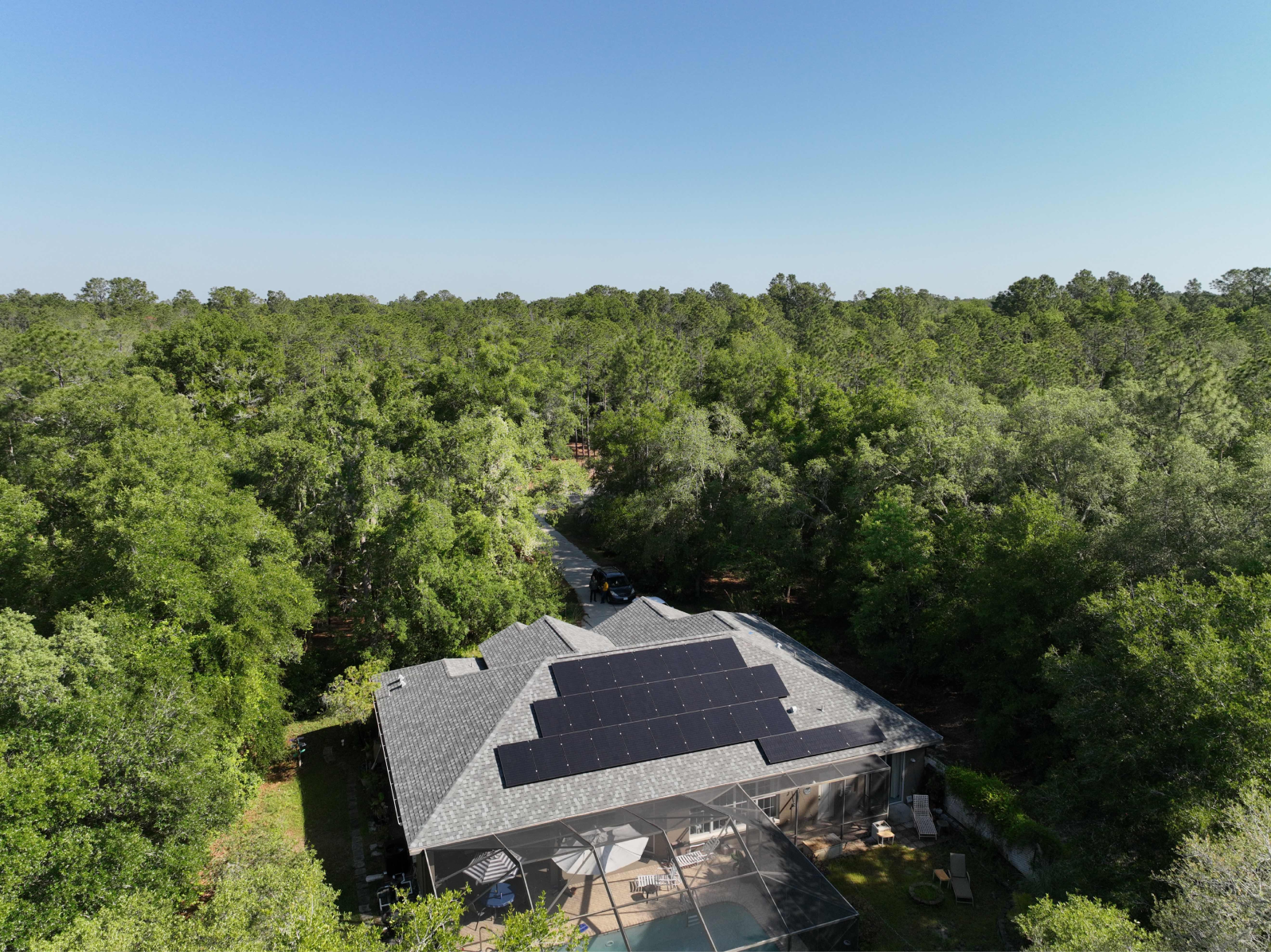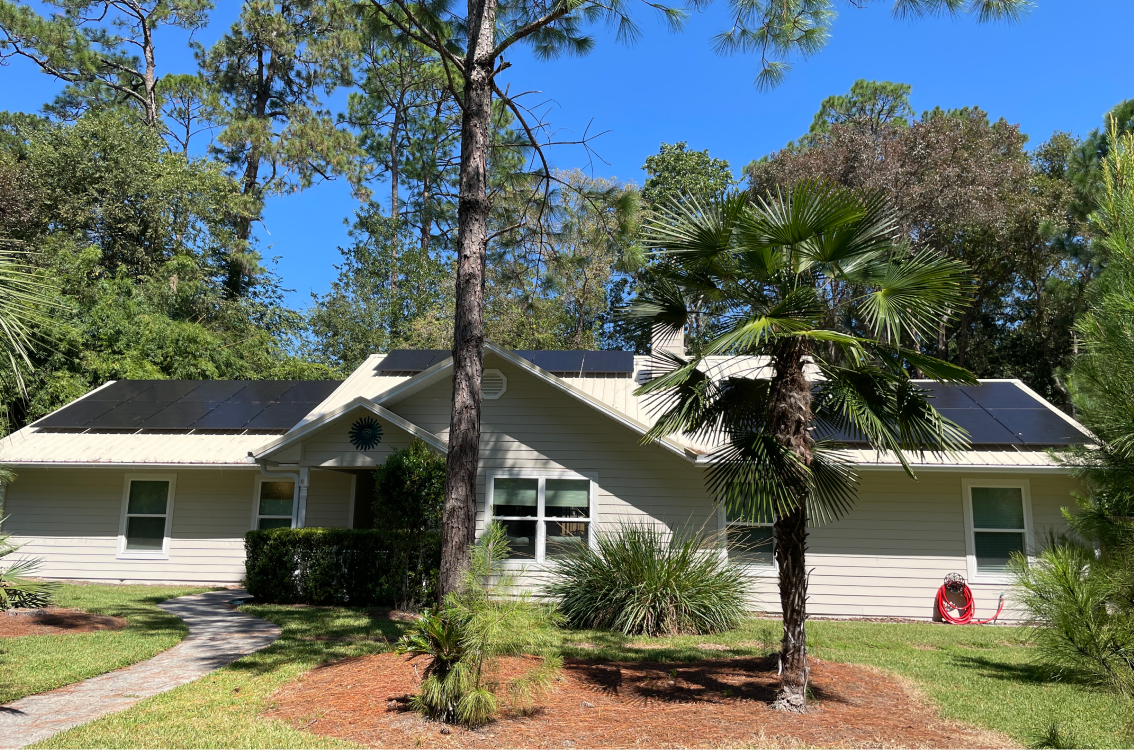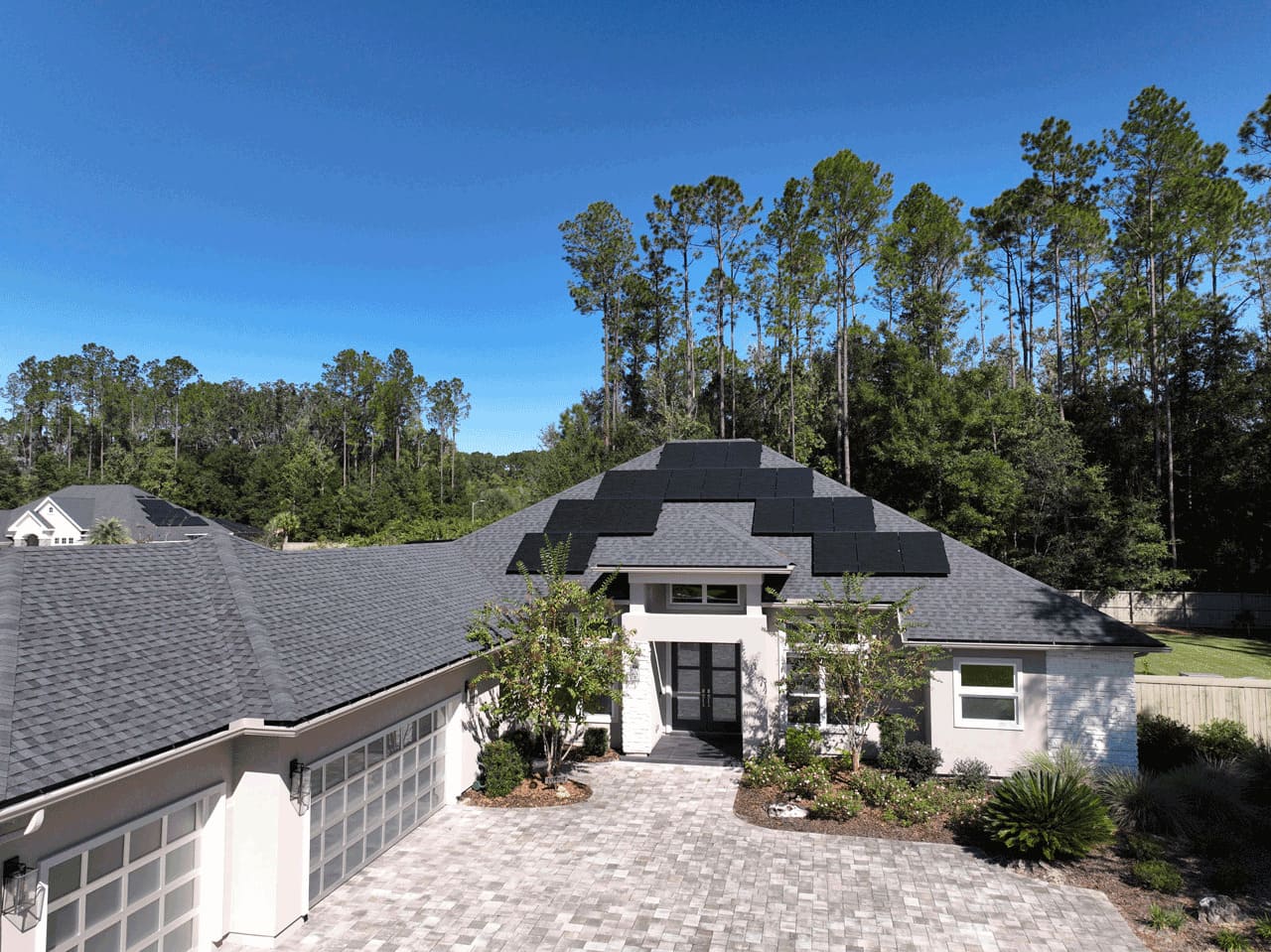When considering the purchase of a rooftop renewable energy system, the interest levels of some homeowners may begin to fade when they seek out the cost of solar panels in Florida.
In plain dollars and cents, solar energy systems can cost tens of thousands of USD to purchase, which is an amount of money that most people do not have simply lying around. As a result, many people incorrectly believe they do not have the budget to invest in solar energy.
In reality, however, the purchase price of a system should not be the deciding factor to move forward with a solar installation. Instead, the true cost of solar panels should be weighed against the electricity expenses you are already paying the utility company each month.
So to truly answer the question, “How much are solar panels in Florida?,” let’s take a look at everything you need to consider to determine the real costs of a home solar installation.
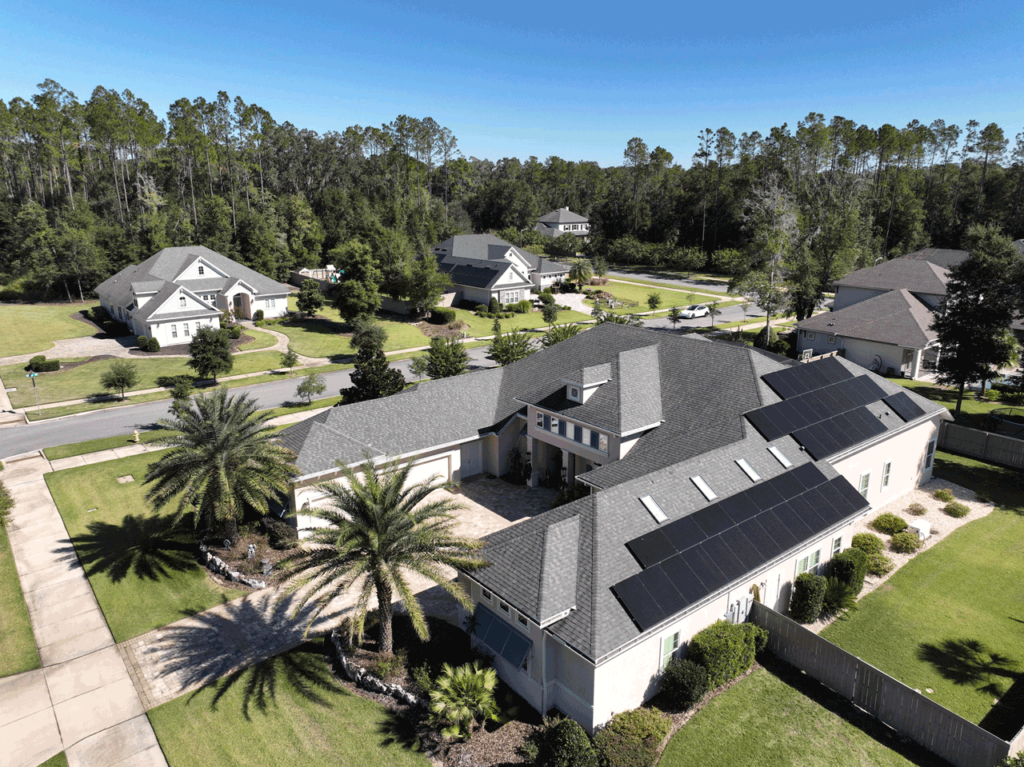
The Average Bill for Electricity in Florida
The key value proposition of home solar energy systems is that they present an alternative to traditional utility electricity. As such, the cost of going solar should always be weighed against the cost of “not going solar” in terms of expected utility bill payments.
While running air conditioners, lights, and every other home appliance, Floridians rack up some of the highest bills in the United States, with an average of $211 per month (or $2,532 per year) spent on electricity. Over 20% above the national average, this also means that Florida residents have a higher chance to save on their energy expenses by switching to solar.
How to Determine Your Solar Panel Quantity
The average cost of solar panels in Florida can range anywhere from $7,000 to $25,000, depending on the number of modules and total operating capacity of the system. To determine your individual costs, you must consider how many solar panels will be necessary to offset your annual electricity usage.
While we recommend talking to multiple solar companies for their opinions on the size of your system, you can begin to understand how many panels you will need by looking at your annual electricity bills. To get a bit technical on your own, you can divide your total daily electricity consumption by the proposed solar panels’ wattage ratings and the number of peak daily sunlight hours.
Using 350-watt solar panels and an average of 4 daily peak sun hours in Florida, it is fairly easy to calculate the number of panels you will need. Knowing that Floridians use about 15,000 kWh per year (or 41 kWh per day), the average home in FL would need about 29 panels (41,000 Wh/4 hours per day/350W panels) to cover daily use.
Now before you go shopping for solar and expect a certain price, it is also important to remember that there are many other costs associated with a PV installation besides the panels themselves. Homeowners going solar will also need to pay for an inverter system, wiring, permitting, labor, and other project expenses. Thankfully, most solar providers will be able to quantify all of this into one simple bottom-line figure.
How much do solar panels cost in Florida?
Although this may come to you as a surprise, the total cost of solar in Florida is less about the price of a system and more about the method you will use to pay for it. Depending on your method of payment, you may be able to go solar with less overall investment, and thus more savings on electricity expenses.
Whenever making any solar purchase, whether by loan or cash, the cost of a system will drop significantly if you are eligible for the 30% federal solar investment tax credit (ITC). Applicable to panels, batteries, and other system expenses, the solar ITC can considerably reduce your total cost of solar in Florida.
Purchase by Cash
By and large, a cash purchase is the best way to reduce the total costs of a solar energy system. While not financially feasible for many homeowners, paying a large lump sum helps buyers avoid financing fees or contract expenses from a loan or solar panel lease.
If you’re interested in reducing the cost of your solar energy system as much as possible, we recommend asking your installer if they offer a cash discount. Often, solar companies will be able to lower their quoted prices if the entire system will be paid off at once in cash.
Purchase by Loan
Second, a solar loan is the most common type of financing that homeowners have used to purchase panels in the last fifteen years. Often offered with no payment required upfront, the cost of solar in Florida is usually much more attainable for homeowners when financed over a 5,10, or 15-year period.
Whenever you are purchasing solar with a loan, the total cost of your system will be spread out over a long period of monthly payments. On top of the base price of the panels, labor, and other installation costs, you will also be paying for the interest accrued as outlined by the loan terms. As such, buyers should seek out solar loans with the best possible interest rates.
Solar Panel Leases
Finally, solar panel leases are the most expensive overall option for going solar in Florida. Although they do have the potential to lower your electricity expenses against utility spending, solar panel leases rarely allow homeowners to “own” their panels, and thus the cost of the installation will continue to rise so long as the lease is active.
Most importantly, solar panel leases often include price adders, in which the cost of the panels will increase year over year, much like utility expenses. So instead of a solar panel lease, we recommend exploring a virtual purchase power agreement or community solar option to help gather as much value as possible from your investment when solar ownership is off of the table.
If you want to:
👉 ensure you’re getting the best and latest technology,
👉 feel comforted, educated, and safe
👉 deal with a local company that is always available for all your future needs
PPM is the right choice for you, as we were for over 1,000 other Florida residents who chose our team to install their solar arrays.
Click the link below to schedule your FREE consultation with one of our solar specialists today!
GET MY FREE QUOTE IN ONE DAY
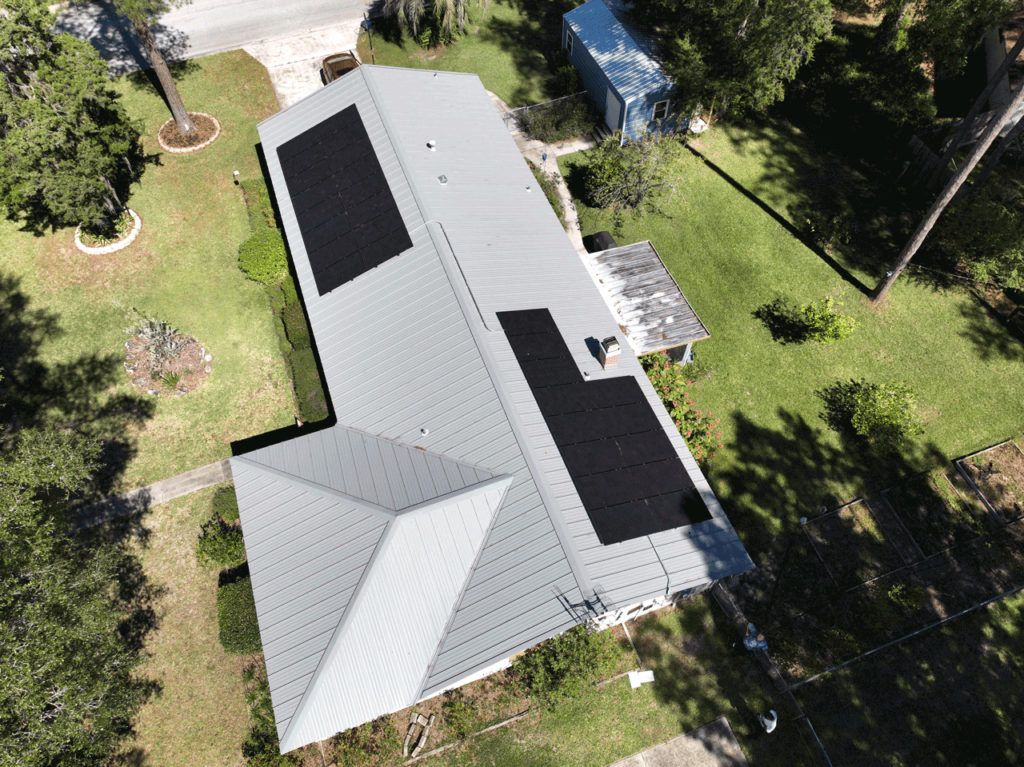
How much money can you save by going solar in Florida immediately?
If your monthly solar payments are less than your average electricity bill without panels, then you can potentially save money by going solar in the very first month. While this amount may be marginal, monthly savings will add up over the multi-decade lifespan of your system, especially in areas with rising utility electricity rates.
More often than not, however, going solar allows homeowners to work towards a break-even point in which the panels begin to “pay for themselves” after their total costs in utility spending have been avoided. With a national average of about 8 years, Floridians going solar should talk to their installer about their own expected payback period.
Over time, individual solar owners in Florida will save more and more money based on the amount of utility energy they avoid with rooftop solar power. While solar is not necessarily an immediate path to savings, most homeowners in Florida can expect to save over $20,000 on electricity expenses within the first 25 years of their panels’ operation.
Environmental Benefits
Of course, when considering the idea of going solar at home, there are a few other things at stake besides just saving money on monthly expenses. As many people cite solar’s environmental benefits as one of the primary reasons for purchasing a system, offsetting local carbon emissions is an installation perk that is invaluable to those actively fighting climate change.
On top of a PV system, adding a Tesla сar сharger to a home solar installation can take its environmental benefits even further. With a home solar system and EV charger integrated together, you can step into the future and drive a solar-powered car with low energy costs to fill the battery.
Final Words
In summary, the true cost of solar should never be a simple matter of dollar figures on an installation contract. Instead, the actual price of solar must be weighed against what an individual is already paying for electricity at home, and what those expenses may look like in the future.
By purchasing solar panel system installations now, Florida residents can lock in the price of their electricity with a smart solar loan or cash purchase. Serving homeowners with energy services and al installing solar panels for commercial use in Florida, PPM Solar is here to help in Gainesville, Tampa, and many other areas across the sunshine state.
FAQ
Will solar panels get cheaper in 2023?
Although this answer will vary from person to person, no, in general, solar panels are not expected to get cheaper in 2023. While solar panels have experienced dramatic cost reductions over the last fifteen years, average installation expenses have been somewhat level nationwide, and even rose in 2021 and 2022 due to supply chain considerations.
Will Florida cover the cost of solar panels?
No, Florida does not cover the cost of solar panels for individual residents, nor are there any state-wide financial programs for going solar offered in the Sunshine State. Instead, home and business owners can invest in the cost of solar in order to offset utility energy expenses.
Is solar worth the cost in Florida?
Yes, in 2023, homeowners hoping to save money on their long-term energy expenses will almost always find that the solar system cost in Florida is going to be worth it. When working with a reputable solar company, FL residents should be able to find a cash or financing offer that will lower their electricity expenses over the lifetime of the system.
Do solar panels increase property taxes in Florida?
No, although they will increase the value of your property, solar panels will not increase your property taxes. Like in many other states, there is a 100% property tax exemption on solar panels for home use in Florida.
What happens after you pay off solar panels?
After you pay off your solar panels, then they are yours to keep for the rest of their working lifetime. Although it can be a bit anticlimactic, essentially nothing will change once your solar panels are paid off. Instead, your monthly expenses will drop dramatically while your panels still continue to produce electricity on your roof.
